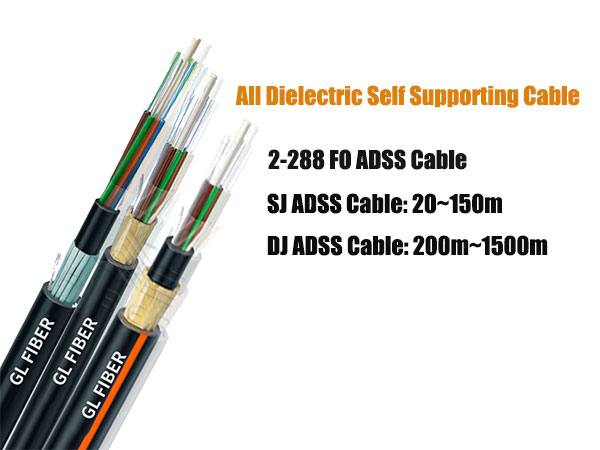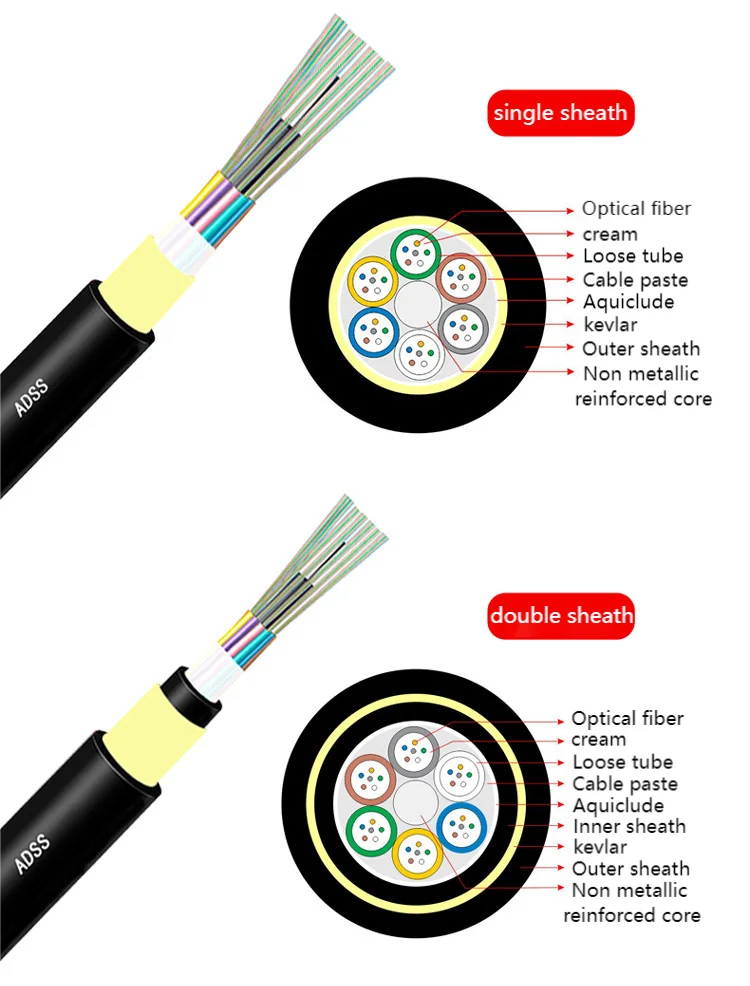ADSS (All-Dielectric Self-Supporting) cables are widely used in the telecommunications industry for their ability to be installed without the need for metallic supports. They are especially useful for aerial installations where they can be strung between poles without the need for additional support structures. The distinctive quality marks of ADSS cables include:

1. All-Dielectric Construction
No Metal Components: ADSS cables are made entirely of non-metallic materials, which makes them immune to electromagnetic interference (EMI) and safe to use in high-voltage environments.
Lightweight: The absence of metal makes ADSS cables lighter and easier to handle during installation.
2. Self-Supporting
Tensile Strength: ADSS cables have high tensile strength, allowing them to span long distances between poles without sagging or requiring additional support.
Integrated Strength Members: The cables are designed with integrated strength members, often made of aramid yarn or similar materials, which provide the necessary mechanical support.
3. Weather Resistance
UV Resistance: ADSS cables are resistant to ultraviolet (UV) radiation, making them durable even when exposed to direct sunlight over long periods.
Temperature Tolerance: These cables are designed to withstand a wide range of temperatures, ensuring reliability in various climates.
Water and Corrosion Resistance: The all-dielectric materials used in ADSS cables are also resistant to water and corrosion, making them suitable for use in harsh environmental conditions.
4. High-Fiber Count
Fiber Capacity: ADSS cables can carry a large number of optical fibers, allowing for high data transmission capacity over long distances.
Low Attenuation: The optical fibers within ADSS cables have low signal attenuation, ensuring high-quality signal transmission over long distances.
5. Ease of Installation
No Grounding Required: Since ADSS cables are all-dielectric, they do not require grounding, which simplifies the installation process and reduces costs.
Flexible Routing: The cables can be installed along existing power lines, reducing the need for new infrastructure.
6. Long Lifespan
Durability: ADSS cables are designed for long-term use, with a typical lifespan of 20 to 30 years, depending on environmental conditions.
Minimal Maintenance: Once installed, these cables require minimal maintenance, further reducing operational costs.

These distinctive qualities make ADSS cables a preferred choice for aerial fiber optic installations, particularly in areas with challenging environmental conditions or where electromagnetic interference is a concern.


